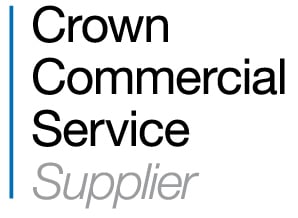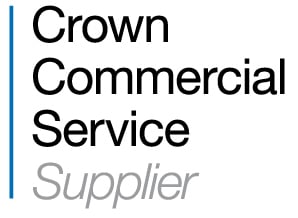Senior Leadership and Management Skills – Three-Day Masterclass

This is an open programme and an in-house training course, which we can deliver either online or in person. For further information and pricing contact [email protected] or phone on +44 20 7661 7817.

Global Government Forum, as part of Pendragon International Media Ltd, have been named as a supplier on Crown Commercial Service’s Learning & Training Services DPS Framework. All our Learning and Training services are included in the framework.
Crown Commercial Service supports the public sector to achieve maximum commercial value when procuring common goods and services.
Day One: Fundamentals of Organisational Governance
Day Two: The Five Principles of Strategic Communication
Day Three: Organisational Development and Change Management Essentials
Overview
This three-day masterclass training programme has been designed for senior managers and management teams. It looks at three of the most important areas of management competence, encompassing governance, strategic communication, and organisational development.
Governance is in part about statutory compliance, but its most important elements in terms of a well-run organisation cover culture, attitudes, responsibility, effective leadership, and achieving full-spectrum staff buy-in. We shall examine how you can move your organisation from current levels of compliance to genuine best practice. It will examine a range of issues and approaches to empower you to implement effective governance throughout your organisation.
Strategic communication is about building engagement that delivers your organisation’s core aims by: Developing and delivering strategic aims; Building constructive relationships; Understanding and influencing opinion; Managing risk and reputation. We shall examine how people think, how they listen and how they respond to information, and how you can prepare your strategies to best effect following five key principles.
Organisational development and change management both require specialist knowledge to implement properly, but they are often undertaken without senior staff fully understanding how to enact them really effectively. We shall examine how to lead organisations, people and teams through change and to how manage the transition successfully.
Who is the seminar designed for?
The seminar is designed for management teams, senior staff, and all individuals who wish to improve their high-level management and leadership capacity. It will also be useful for anyone involved in setting organisational strategies, leading change, through to line managers and team members with responsibility for delivery.
How will you benefit from attending?
You will develop a deeper understanding of organisational behaviour and culture, and plan how to interact with your staff to achieve the level of buy-in needed to make governance processes effective. You will also acquire a profound knowledge of why certain communications approaches work best, which will enable you to make practical plans to improve your personal and organisational communications focus and strategies. You will also benefit from the examination and analysis of what works in organisational development and change management and what to avoid.
Learning Outcomes
You will:
- Understand best practice approaches to governance and understand how to strengthen accountability and scrutiny
- Learn how M&E and benchmarking can help you improve your governance and compliance
- Understand how the organisational culture needs to support the governance mechanisms
- Learn how to use the five primary principles of communication: Audiences; Engagement; Persuasion; Narrative; Advocacy
- Gain key practical insights from organisational development and change management
- Learn how to plan for change in the context of embedding new behaviours, and how to roll out a change programme successfully
- Be confident that you can lead and support change
Day One Fundamentals of Organisational Governance
Session One Overview and Introduction to Governance Best Practice
Overview of the principles and characteristics of robust governance
Commonalities in good governance and transferability across organisations, sectors and continents
Monitoring and evaluating to ensure full compliance and implementation
The role of Boards in the public sector
Examples of corporate governance codes of practice in the public sector
Techniques for applying methodologies from M&E to specific statutory and regulatory frameworks
Discussion of delegates’ experiences and sharing of approaches
Session Two Improving Accountability
Accountability in practice
Disclosure and transparency
Avoiding the negative effects of bureaucracy
Risk and governance
Effective reporting, scrutiny and learning lessons
The Principal / Agent problem and how to address it
Discussion of how delegate ideas for improving accountability
Lunch Break
Session Three Benchmarking and Values in Governance Contexts
Distinguishing between processes and attitudes
Benchmarking internal compliance with organisational governance frameworks
Applying best practice above and beyond – ethical decision-making (what is it? how to do it, who to communicate it to, what to avoid)
The values and behaviours that support good governance
Facilitated discussion
Session Four Organisational Culture in the Context of Governance
What does organisational culture mean in the context of governance?
How can an organisational culture hinder or support good governance?
How does organisational culture impact on attitudes, behaviours, motivations, and performance?
How do you change a long-standing culture?
Promoting a compliance culture
Developing a continuous improvement culture
Delegate input
Close
Day Two The Five Principles of Strategic Communication
Session One The Case for Strategic Communication
Introductions including sharing the individual aims of each participant, followed by three short case studies on the relevance of strategic communications. Then the five principles are introduced, including how they inter-relate and connect with other communications techniques and disciplines, such as media management, stakeholder relations, political campaigning, advertising, marketing, speech-writing. Then follows a discussion on their relevance to the challenges facing participants and their organisations.
Session Two Audiences
Introducing the concepts of audiences, segmentation and profiling, drawing on commercial, social and political marketing practice. It introduces core research techniques (polling, focus groups) and analysis techniques (segmentation, geo- and psycho-demographics) that cover not only what people say and do but how they think and feel, exploring the concept that 90% of people’s actions are driven by instinctive and emotional responses. This expands into some core insights from psychology and sociology; into cultural difference; and also connects to social marketing and behavioural change.
Exercise: Designing a Survey
Session Three Engagement
Engagement is about developing an effective conversation that will move audiences from where they are now to where you want or need them to be. Using individual and group psychology, it explores how people hear and assimilate communications; the interaction between rational thought and emotion; self-image and self-actualisation; and allied phenomena such as dissonance and groupthink. Together, it provides the foundation for understanding why different forms of communication work – or don’t work – for different audiences, messages and channels.
Lunch Break
Session Four Persuasion
Showing how, once identified and profiled, an audience can be persuaded to shift their attitudes or their behaviour. It begins by looking at the brand of the persuader, including reputation, and the role of trust. It then considers ways of establishing communication through shared points of view or experiences, demonstrating empathy; ways to add to or build upon rather than challenge existing viewpoints; the role of evidence, including the way ‘facts’ are processed, and people’s knowledge of and trust in science and in statistics; different forms of argument and assertion; and the role of trusted intermediaries and endorsements.
Session Five Narrative
Developing narratives that work across different audiences and channels, bringing together values, vision, policy, evidence and arguments; combining it with effective language and imagery; ensuring consistency and coherence; and anticipating objections and attack-points. It covers specific techniques such as story-telling; the use of myth, associations and assumptions; framing; imagery and mood; and killer facts and memes; and shows how the narrative can be used to create communications products ranging from set-piece speeches to adverts.
Exercise: Writing your Narrative
Session Six Advocacy
Taking persuasion and narrative and exploring how they work within contested environments, with competing players (including neutrals and intermediaries). Discussion of the imperatives governing the media and civil society / campaigning groups and the strategies and tactics they employ; the news cycle; lobbying and influencing; policy formulation and the ‘zone of the possible’; forming alliances; anticipating and neutralising threats. It introduces some underlying disciplines such as game theory and specific techniques in media management and in campaigning, including agenda-setting, scenario planning, and the use of ‘red teams’ to anticipate the tactics of other players.
Close
Day Three Organisational Development and Change Management Essentials
Session One Overview and Introduction to Organisational Development and Change Management
Overview of the key principles of organisational development and how these support change management
Criteria for assessing the “health” of an organisation
The link between strategic management and change management
Why managing programmes requires change management skills
Discussion of delegates’ experiences and sharing of approaches
Session Two Communicating the Case for Change
Getting support for the business case
Motivation, incentives and creating the necessary sense of urgency
Building the coalition for change – understanding the power dynamics
Undoing attachment to the status quo
Communicating a compelling vision
Co-creating change and involving stakeholders (internal and external)
Lunch Break
Session Three Organisational Culture in the Context of Change Management
Examination of values and culture
Leading by example and setting the tone
Analysis of what impacts on collective cultures. Understanding vested interests, ways of working, hierarchies, empires, teams, relationships, comfort zones
The role of HR – reinforcement and reward of ethical behaviour, managing performance and strategically tackling the drivers of bad workplace cultures
Delegate input
Session Four Implementing and Embedding Organisational Change
Techniques for developing a robust change programme
Systems thinking and change
Anticipating resistance, understanding and interacting with it, and working with people to achieve buy-in (change cannot be imposed successfully, it must be embedded collaboratively as part of a virtuous circle)
Creating short-term wins as a pathway to long-term success
Transparency, honesty and listening to feedback
Timescales, building on success, evaluation and improvement planning
Final discussion
Close
This is an open programme and an in-house training course, which we can deliver either online or in person. For further information, including details about tailoring the content of the session to your precise L&D needs, please contact [email protected] or phone on +44 20 7661 7817.

Crown Commercial Service supports the public sector to achieve maximum commercial value when procuring common goods and services.








